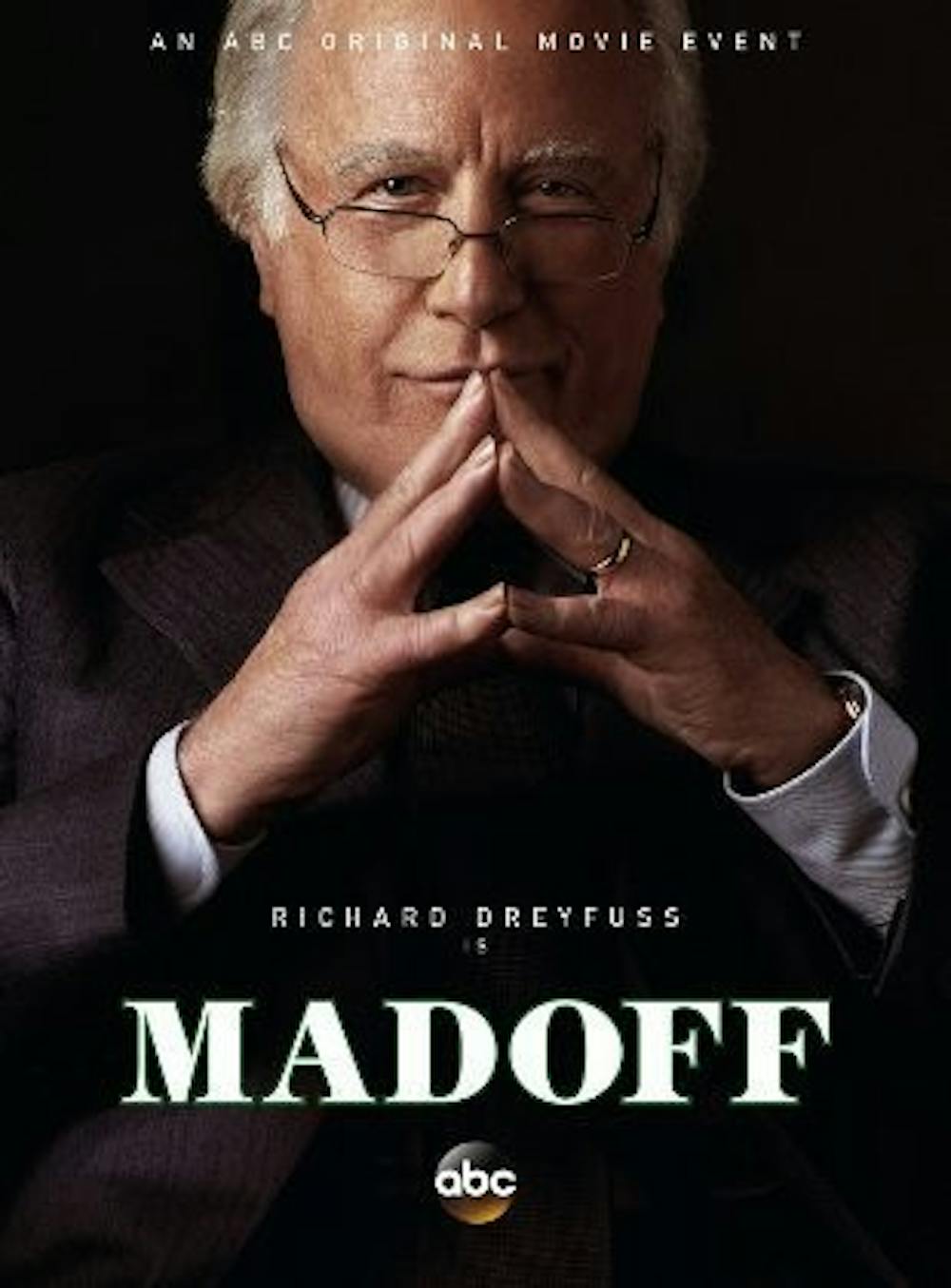“Madoff” — ABC’s latest miniseries — is a bit of “Breaking Bad” mixed with “The Big Short” and topped with a touch of Martin Scorsese. Like Madoff himself, the show takes on a bit more than it can chew, which results in a strange, overly dramatic retelling of the world’s most notorious Ponzi scheme.
However, “Madoff” doesn’t seem to know what it wants to be. It’s not going to explain — even in layman’s terms — what exactly Bernie Madoff did to steal over $50 billion from investors. There are moments where a gist of what’s going on with his money, but “Madoff” can’t quite do what “The Big Short” pulled off so well — explaining difficult financial concepts without losing audience interest. As a result, “Madoff” is confusing and sloppy at times because it assumes the viewer understands these various financial terms.
Even if the finer financial points are hard to follow, “Madoff” pulls through in telling a brilliantly high tension story, which makes it fly by. The storytelling is backed by a captivating portrayal of Bernie Madoff by Richard Dreyfuss.
More than anything, “Madoff” is a family drama. The movie spends a good chunk of time out of the office, showing Bernie at home with his kids, talking to his wife and helping his sons through their cancer treatment. This work-home dynamic paints Bernie as a morally-gray character. He is a criminal, but it’s difficult not to feel bad for the guy as his world crashes around him. After all, he was doing everything for his family.
However, this portrayal isn’t done with quite the skill that Vince Gilligan used to create Walter White. If anything, it feels a bit botched. Bernie’s character cycles too quickly from a loving family man to a ruthless businessman. The story cuts in and out from his financial world to his personal world too quickly to establish an attachment or understanding with either. Neither world achieves the buildup it deserves and. as a result, neither delivers.
One thing the four-hour drama doesn’t lack is drama. Bernie lived with one hand in the piggy bank and one in the cookie jar, and “Madoff” displays this throughout. There are lies, betrayal, affairs and more lies, all on top of the $50 billion scam Bernie is running.
The series also has its share of hokier cinematic moments. At one point, “Madoff” tries to do a quick flash forward cut to Bernie in prison that appears shoehorned in for effect. The show’s final scene also sees Bernie breaking the fourth wall and turning to talk to the camera in a final last ditch attempt to explain himself — just like at the end of Scorsese's “Goodfellas” where Henry Hill does the exact same thing in almost the exact same setting.
Despite a few hiccups, “Madoff” is undeniably good television. It definitely feels as if it’s trying to be something more than it is, but it doesn’t destroy itself in the process of trying — something Bernie Madoff himself could have learned from.







